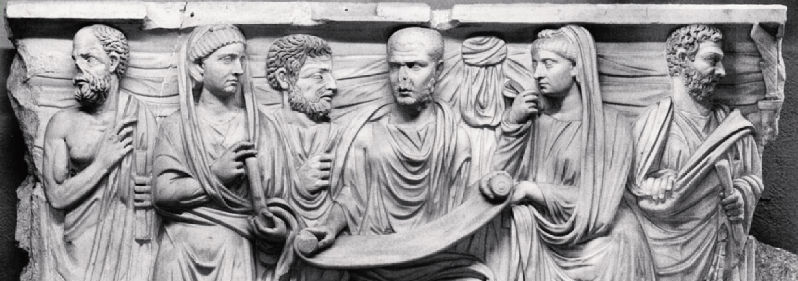Eriugena delves into the Greek tradition to produce his masterpiece of metaphysics and theology, the Periphyseon.
Further Reading
• Eriugena, Periphyseon (The Division of Nature), trans. I.-P. Sheldon-Williams and J.J. O’Meara (Montreal: 1987).
• D.F. Duclow, “Divine Nothingness and Self-Creation in John Scotus Eriugena,” Journal of Religion 57 (1977), 109-23.
• J. Marenbon, “John Scottus and the ‘Catagoriae Decem,’” in W. Beierwaltes (ed.), Eriugena: Studien zu seinen Quellen (Heidelberg: 1980).
• D. Moran, The Philosophy of John Scottus Eriugena: a Study of Idealism in the Middle Ages (Cambridge: 1989).
• D. Moran, “Idealism in Medieval Philosophy: The Case of Johannes Scottus Eriugena,” Medieval Philosophy and Theology 8 (1999), 53-82.
• J.J. O’Meara and L. Bieler (eds), The Mind of Eriugena (Dublin: 1973).
• W. Otten, “The Dialectic of the Return in Eriugena’s Periphyseon,” Harvard Theological Review 84 (1991), 399-421.
SOURCE: HISTORY OF PHILOSOPHY NET
